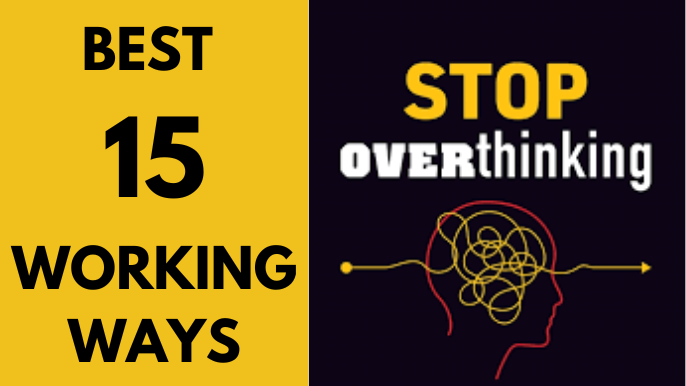Mental well-being refers to the state of being mentally healthy, where an individual experiences positive emotions, psychological resilience, and the ability to cope with life’s challenges.
It encompasses aspects such as emotional balance, stress management, and overall psychological stability. Achieving mental well-being means feeling content, managing stress effectively, and having the mental clarity to make sound decisions.

Why is Mental Well-being Important?
Mental well-being is vital because it affects how we think, feel, and behave. It influences our relationships, our work, and even our physical health.
A positive mental state helps us to manage emotions, build meaningful connections, and engage in life with a sense of purpose. Poor mental well-being, on the other hand, can lead to a variety of issues such as anxiety, depression, stress, and even physical illnesses like heart disease and chronic pain.
In fact, studies have shown that people who prioritize their mental well-being experience higher levels of happiness, productivity, and overall satisfaction. Regularly engaging in mental well-being habits can significantly improve one’s quality of life, providing the mental strength to tackle everyday challenges.
In the next sections, we’ll explore 35 daily habits to boost mental well-being, providing practical and easy-to-follow tips that can help you take control of your mental health.
Also Check: 16 Superfoods to Incorporate into Your Diet for Optimal Health
35 Daily Habits to Improve Mental Well-being
In this section, we will delve into 35 powerful daily habits to boost mental well-being. These habits cover various aspects of life, including physical health, mindfulness, emotional well-being, productivity, and personal growth.
Whether you’re looking to reduce stress, improve focus, or cultivate happiness, these mental well-being habits are designed to be practical and easy to integrate into your daily routine.
A. Physical Health Habits
1. Start Your Day with Hydration
Drinking a glass of water first thing in the morning rehydrates your body and mind after hours of sleep. Hydration is essential for cognitive function, concentration, and energy levels. Staying hydrated throughout the day also helps maintain your mood and mental clarity, promoting overall mental well-being.
2. Regular Exercise
Physical activity has been shown to significantly improve mental health by reducing anxiety, depression, and stress. Exercise releases endorphins, which are the brain’s natural mood enhancers. Aim for at least 30 minutes of moderate exercise, such as walking, jogging, or yoga, to boost your mood and improve your mental resilience.
3. Get Sufficient Sleep
Sleep plays a crucial role in boosting mental well-being. Poor sleep can lead to mood swings, irritability, and impaired cognitive function. Aim for 7-9 hours of quality sleep each night. Good sleep hygiene practices, such as avoiding screens before bed and maintaining a consistent sleep schedule, can improve the quality of your rest.
4. Eat a Balanced Diet
A nutritious diet can positively impact mental health by providing essential nutrients that support brain function. Eating a variety of fruits, vegetables, whole grains, and healthy fats helps maintain stable blood sugar levels and supports neurotransmitter function, which in turn enhances mood and cognitive performance.
5. Practice Deep Breathing
Deep breathing exercises activate the body’s relaxation response, helping to reduce stress and anxiety. Taking a few minutes each day to practice deep breathing can lower cortisol levels, calm the mind, and improve emotional regulation. Try techniques like diaphragmatic breathing or box breathing to boost your mental well-being.
6. Stretch or Do Yoga
Stretching or practicing yoga daily helps to release tension, improve flexibility, and reduce stress. Yoga, in particular, combines physical postures with mindfulness and breathing, which makes it a powerful tool for improving both mental and physical health.
Also See: 10 Quick Metabolism-Boosting Snack Recipes for Busy People
B. Mindfulness and Mental Practices
7. Meditate Daily
Meditation is a proven technique for improving mental clarity and reducing stress. Regular meditation practice can enhance focus, calm the mind, and promote emotional balance. Whether it’s mindfulness meditation, guided meditation, or simply sitting in silence, meditation helps boost mental well-being by allowing you to connect with the present moment.
8. Practice Gratitude
Practicing gratitude daily has a powerful impact on your mental state. Taking a moment each day to reflect on the things you are thankful for can shift your focus from what’s lacking to what’s abundant in your life. This positive shift can improve mood, reduce negative thinking, and increase feelings of contentment.
9. Engage in Positive Self-talk
Negative self-talk can contribute to stress, anxiety, and feelings of inadequacy. Replacing negative thoughts with positive affirmations can help build confidence, improve self-esteem, and promote a healthier mental state. Practice speaking to yourself kindly and remind yourself of your strengths and accomplishments.
10. Mindful Eating
Mindful eating involves paying full attention to the experience of eating—savoring each bite, noticing textures, and eating slowly. This practice not only helps improve digestion but also fosters a healthy relationship with food, reducing emotional eating and promoting overall well-being.
11. Visualization
Visualization is a powerful mental technique where you imagine yourself succeeding in a goal or overcoming challenges. By vividly picturing success, you train your mind to believe in your abilities and increase your chances of achieving your goals. Regular visualization boosts self-confidence and provides motivation to keep moving forward.
12. Keep a Journal
Journaling is an excellent way to process emotions, clear mental clutter, and gain perspective. Writing down your thoughts, feelings, and experiences allows you to reflect on your day, identify patterns in your emotions, and track your personal growth. This daily habit can improve emotional regulation and boost mental clarity.
13. Engage in Deep Breathing Exercises
Deep breathing is a simple yet effective tool for reducing stress and promoting relaxation. Techniques like diaphragmatic breathing or 4-7-8 breathing help calm the nervous system and increase focus. Incorporating deep breathing into your daily routine can significantly reduce anxiety and improve mental well-being.
Also Check: 7 Benefits of Eating Eggs in Breakfast for Hair Health
C. Social and Emotional Habits
14. Cultivate Meaningful Relationships
Positive social connections are vital for mental well-being. Building and nurturing meaningful relationships with friends, family, and colleagues provide emotional support, reduce loneliness, and foster a sense of belonging. Make time for regular social interactions and be present with those you care about.
15. Set Healthy Boundaries
Establishing healthy boundaries is essential for protecting your mental health. Learning to say “no” when needed and setting limits on your time and energy helps prevent burnout and emotional exhaustion. Boundaries enable you to prioritize your well-being while maintaining respectful relationships.
16. Practice Active Listening
Active listening involves fully engaging in conversations, focusing on the speaker, and responding thoughtfully. By practicing active listening, you show empathy and understanding, which strengthens relationships and promotes positive emotional exchanges. This practice can improve your social connections and overall mental health.
17. Express Yourself Creatively
Creativity is an excellent outlet for emotional expression. Whether it’s through art, music, writing, or other creative activities, expressing yourself allows you to process emotions and reduce stress. Engaging in creative hobbies regularly can enhance emotional well-being and increase feelings of accomplishment.
18. Practice Empathy
Empathy is the ability to understand and share the feelings of others. Practicing empathy not only strengthens your relationships but also improves your emotional intelligence. By showing compassion and understanding, you can create a positive social environment that enhances your mental well-being.
19. Laugh Daily
Laughter is one of the best natural stress relievers. It triggers the release of endorphins, which are the body’s feel-good chemicals. Make time for activities that make you laugh, such as watching a funny show, playing with pets, or spending time with loved ones. Laughter is a simple yet effective way to improve your mood and reduce stress.
Also Check: 12 Amazing Foods That Boost Mood Naturally
D. Productivity and Goal-setting
20. Set Realistic Goals
Setting achievable goals helps provide a sense of direction and purpose. Break down large goals into smaller, manageable tasks to avoid feeling overwhelmed. This sense of accomplishment, even with small victories, boosts confidence and motivates you to keep progressing.
21. Prioritize Your Tasks
Organizing your tasks based on importance allows you to focus on what truly matters. Use techniques like the Eisenhower Matrix or time-blocking to prioritize tasks and reduce mental clutter. Effective prioritization reduces stress and enhances productivity, ultimately improving mental well-being.
22. Use Time-blocking
Time-blocking involves scheduling specific periods for different tasks throughout your day. By structuring your day and allocating focused time slots for work, relaxation, and personal activities, you can avoid feeling scattered and maintain mental clarity. This practice helps reduce overwhelm and boosts productivity.
23. Celebrate Small Wins
Acknowledging small achievements boosts self-esteem and reinforces positive behavior. Take time to celebrate even the smallest successes in your day, whether it’s completing a task, sticking to your routine, or overcoming a challenge. This habit fosters a sense of accomplishment and increases motivation.
24. Take Breaks Throughout the Day
Regular breaks are essential for maintaining mental focus and reducing burnout. Step away from your desk, stretch, take a walk, or engage in a short mindfulness practice. Breaks refresh the mind, increase productivity, and help you maintain mental clarity throughout the day.
Also Read: 15 Healthy Snacks to Boost Your Metabolism
E. Relaxation and Downtime
25. Unplug from Technology
Constant exposure to screens and digital distractions can lead to mental fatigue. Unplugging from technology, especially before bed, allows your mind to unwind and reduces stress. Try a digital detox by limiting screen time and engaging in offline activities that nurture your well-being.
26. Spend Time in Nature
Nature has a calming effect on the mind. Spending time outdoors, whether it’s in a park, by the beach, or in the mountains, helps reduce stress, improve mood, and increase mental clarity. Aim to spend time in nature regularly to recharge your mental batteries and enhance your overall well-being.
27. Read Books or Listen to Podcasts
Reading or listening to podcasts is a great way to engage your mind and relax. Choose books or podcasts that uplift, inspire, or educate you. This daily habit fosters mental growth, reduces stress, and can even improve sleep if done before bed.
28. Pamper Yourself with a Self-care Routine
Self-care is crucial for maintaining mental health. Engage in activities that make you feel relaxed and rejuvenated, such as taking a warm bath, getting a massage, or practicing skincare. Self-care rituals allow you to disconnect from stress and prioritize your well-being.
29. Indulge in a Hobby
Pursuing a hobby you love provides a mental break from daily stresses. Whether it’s gardening, painting, knitting, or any other activity that brings you joy, hobbies offer a sense of fulfillment and relaxation, which directly contribute to mental well-being.
F. Spiritual and Philosophical Practices
30. Practice Mindful Breathing
Mindful breathing involves paying attention to your breath in a focused, non-judgmental way. This practice helps anchor you in the present moment, reducing anxiety and promoting calm. By incorporating mindful breathing into your routine, you can enhance your mental clarity and emotional balance.
31. Cultivate Compassion
Developing compassion towards others and yourself fosters emotional resilience and mental well-being. Practicing compassion improves relationships and reduces feelings of isolation or resentment. Be kind to yourself and others to nurture your mental health.
32. Explore Spiritual Practices
Spiritual practices, such as prayer, meditation, or mindfulness, help create a sense of inner peace and connection. These practices can help you cultivate gratitude, patience, and compassion, all of which are essential for improving mental well-being.
33. Embrace Silence
Embracing moments of silence throughout the day allows your mind to rest and recharge. Whether it’s through meditation, mindful walking, or simply sitting in silence, taking time to disconnect from external noise promotes mental clarity and reduces stress.
34. Learn to Forgive
Letting go of grudges and forgiving others is a powerful way to improve mental health. Holding onto anger or resentment can negatively affect your emotional state. Practice forgiveness to free yourself from negative emotions and foster peace of mind.
G. Personal Growth and Learning
35. Continuous Learning
Engaging in lifelong learning not only stimulates the mind but also boosts confidence and mental resilience. Whether it’s learning a new skill, reading, or taking online courses, continuous learning helps you stay mentally sharp and emotionally fulfilled.
How to Make These Habits Stick
While understanding and learning about daily habits to boost mental well-being is essential, the real challenge lies in making these habits a consistent part of your routine.
It’s not enough to just read about these practices; you need to implement them regularly and make them a sustainable part of your life.
Below are some strategies to help you boost mental well-being by turning these habits into lasting changes.
1. Start Small
When you first start implementing these mental well-being habits, it’s crucial not to overwhelm yourself by trying to adopt too many habits at once. Begin with just a few practices and gradually build up. For example, start with incorporating deep breathing exercises or adding a 10-minute morning meditation session. Trying to change too many things at once can lead to burnout or frustration, so it’s better to focus on one habit and master it before moving on to the next.
Tip: Choose habits that resonate most with your current needs. If you’re feeling stressed, begin with mindfulness exercises or journaling. If you’re looking to boost your energy, start with exercise and hydration.
2. Consistency is Key
The key to making habits stick is consistency. Habits are formed through repetition, and the more consistently you practice them, the more ingrained they become in your daily life. This is why it’s important to practice your chosen mental well-being habits daily, even if it’s just for a short period. It’s better to do something small every day than to do something big once in a while.
Tip: Set a specific time each day for your mental well-being habits. For example, you could meditate first thing in the morning or write in your gratitude journal every evening before bed. This consistency helps your brain associate these activities with a particular time of day, making them easier to integrate into your routine.
3. Track Your Progress
Tracking your progress not only helps you stay accountable but also lets you see how far you’ve come. Keep a journal or use a habit-tracking app to log your daily practices. By seeing the tangible progress over time, you’ll feel motivated to continue, and it will also give you a sense of accomplishment.
Tip: Take note of any changes in your mood, energy levels, or mental clarity as you adopt these habits. Recording these small victories will keep you encouraged and show you the positive effects of your efforts.
4. Be Patient with Yourself
Developing new habits takes time, and there will be days when you may struggle to keep up with your routine. It’s essential to be patient with yourself and understand that it’s normal to face setbacks. If you miss a day or fall off track, don’t be discouraged. Simply acknowledge it, learn from it, and continue moving forward. The goal is progress, not perfection.
Tip: If you miss a day or a few days, don’t beat yourself up. Instead, refocus on your commitment and take one step at a time. This approach will help you avoid the feeling of failure and allow you to build a healthier relationship with your habits.
5. Reward Yourself
Positive reinforcement can significantly enhance your motivation to stick with your mental well-being habits. After reaching certain milestones, treat yourself to something that feels rewarding, such as a relaxing evening, a small gift, or a special outing. Celebrating your progress reinforces the idea that maintaining these habits is a positive and enjoyable experience.
Tip: Use small rewards to reinforce positive behavior. For instance, if you successfully stick to your routine for a week, reward yourself with something you enjoy, like a nice meal or an activity that makes you happy.
FAQs (Frequently Asked Questions)
1. How long does it take to see results from these habits?
The time it takes to see results from mental well-being habits varies depending on the individual and the habits you adopt. However, many people begin to notice improvements in mood, stress levels, and energy within a few weeks of consistently practicing these habits. The key is consistency—small daily actions lead to long-term change.
2. Can these habits help with anxiety and depression?
Yes, many of the habits listed, such as regular exercise, mindfulness, gratitude practice, and deep breathing, are scientifically proven to help reduce symptoms of anxiety and depression. While these habits can improve mental health, they should be used alongside professional help if needed, especially for more severe cases of anxiety or depression.
3. How can I stay motivated to continue these habits?
Staying motivated can be challenging, but tracking your progress, rewarding yourself, and being patient with yourself can keep you on track. It’s important to remember that forming new habits takes time and that even small steps are progress. Surrounding yourself with supportive people or joining a community with similar goals can also provide motivation.
Conclusion
By incorporating the strategies outlined in this section, you’ll not only be able to adopt and sustain daily habits for mental health, but you’ll also create a solid foundation for lasting mental well-being. It’s all about consistency, patience, and staying focused on the positive changes these habits can bring to your life.











